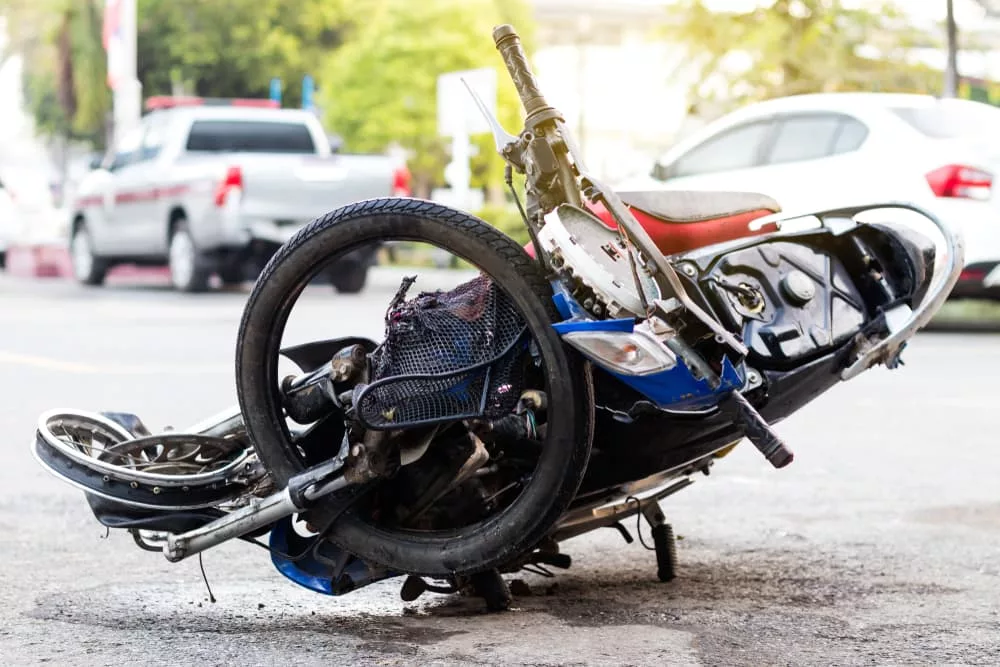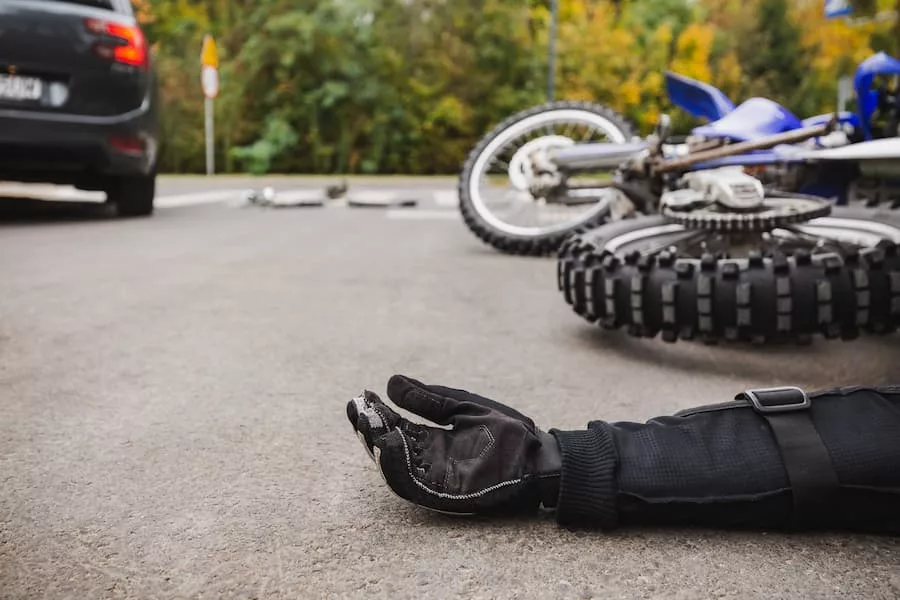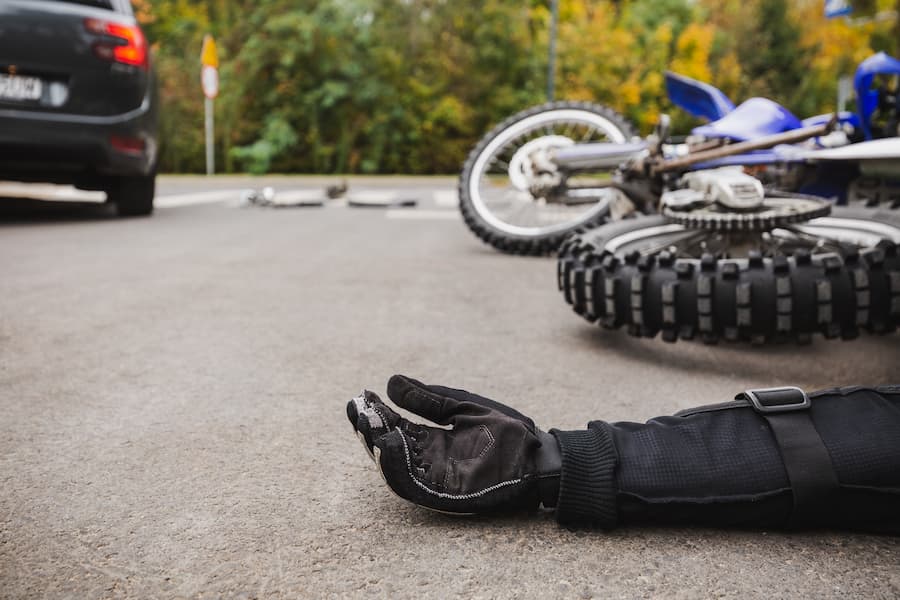A motorcycle accident can be a life-altering event, especially if it leads to disability. If you find yourself in this situation, you probably wonder what happens next. How will you pay for your medical bills and other expenses? What will happen to your job? How will you support your family? These are all valid concerns, and the answers will depend on a variety of factors. Reach out to a Miami motorcycle accident lawyer.
Many types of disabilities can result from a motorcycle accident, and the steps you need to take once you learn you’re disabled may vary depending on the type and severity of your disability.
Temporary Versus Permanent Disabilities
One of the primary factors determining what happens next is whether your disability is temporary or permanent. A temporary disability is a condition that is likely to improve over time with medical treatment and rehabilitation. A permanent disability, however, is a condition that will last indefinitely or for the rest of your life. Crucially, a temporary disability can sometimes turn into a permanent disability if the condition does not improve with treatment.
Types of Temporary Disabilities From Motorcycle Accidents
Many different types of temporary disabilities can result from a motorcycle accident, including:
- Broken bones – Broken bones are a common injury in motorcycle accidents and can cause significant pain and limited mobility.
- Concussions – Head injuries can be severe, resulting in temporary cognitive impairment and other symptoms. Without swift treatment, however, many brain injuries can lead to permanent disabilities.
- Soft tissue injuries – Injuries to muscles, tendons, and ligaments can cause pain and limited mobility. However, they typically heal with time and treatment.
- Internal injuries – Organ damage or internal bleeding can be serious and require immediate medical attention. Nevertheless, they can be temporary with proper treatment.
Types of Permanent Disabilities From Motorcycle Accidents
Permanent disabilities can have a significant impact on every aspect of your life. They usually require ongoing medical treatment and support.
Some examples of permanent disabilities that can result from a motorcycle accident include:
- Spinal cord injuries – Injuries to the spinal column can result in paralysis or limited mobility that could result in the need for assistance with activities of daily living.
- Traumatic brain injuries – Severe head injuries can result in permanent cognitive impairment, memory loss, or other neurological symptoms. They can also permanently affect your mobility and coordination.
- Loss of limbs – Amputations or other injuries that result in the loss of a limb can be permanent and require assistive devices and ongoing medical care.
- Road rash – Road rash that occurs when a person slides across the pavement can be severe and can result in skin grafting, disfigurement, and impaired movement in the affected body parts. The scarring and disfigurement could result in permanent psychological issues, and if the impaired movement that results from the injury doesn’t improve, it could become a permanent disability.
Treatments for Motorcycle Accident Disabilities
The type of treatment you require for your motorcycle accident disability will depend on the nature and severity of your injury.
Some common treatments for motorcycle accident disabilities include:
- Medical treatment – Surgery, medication, physical therapy, and other forms of medical care are often necessary after suffering a disability. The cost of medical treatment can vary widely depending on the specific treatment and its duration. For example, a single emergency room visit can cost thousands of dollars, while ongoing medical care may cost tens or hundreds of thousands of dollars over time.
- Rehabilitation – Physical therapy, occupational therapy, or other forms of rehabilitation can help you regain mobility, strength, and independence after an injury. Depending on the type and severity of the disability, rehabilitation may involve physical therapy, occupational therapy, and speech therapy.
- Psychological treatment – When an accident causes a disability that changes a person’s entire way of living their life, psychological treatment may be necessary to help them cope. A psychologist or psychotherapist could help the injured party adjust to the new reality and provide access to additional resources they can use to manage their new situation.
- Personal care – Personal care may include assistance with daily tasks such as bathing, dressing, and eating. A family member or professional caregiver may provide this. Some benefit programs pay family members who care for their disabled loved ones.
The costs of these treatments can add up quickly, and many victims may face financial hardship due to their disability. Working with an experienced Florida motorcycle accident attorney can help you recover the compensation you deserve to cover these costs.
Insurance Claims for Motorcycle Accident Disabilities in Florida
Florida law does not require motorcyclists to carry Personal Injury Protection (PIP) insurance, which is mandatory for all other motorists. Instead, motorcyclists in Florida must carry a minimum of $10,000 in property damage liability coverage and $10,000 in bodily injury liability coverage. If a motorcyclist suffers injuries in an accident where another driver is at fault, they may file a claim against the other driver’s liability insurance.
In some cases, the at-fault driver may have little or no insurance, making recovering compensation for your injuries more challenging.
After a motorcycle accident in Florida, consider these factors when pursuing an insurance claim:
- Fault – If you did not cause the accident, your attorney must demonstrate that the other driver was liable. It is vital to gather evidence to support your claim, including witness statements, police reports, and medical records.
- Coverage – Learn as much as possible about the at-fault driver’s insurance coverage, including the limits of their liability insurance policy. If their policy limits are insufficient to cover your losses, you may file a claim with your own uninsured/underinsured motorist coverage if you purchased that coverage when you bought your policy.
- Medical treatment – Seek medical treatment as soon as possible after an accident. Even if you do not believe you have suffered serious harm, remember that some seemingly minor injuries can become more severe without swift medical attention. Furthermore, medical records and bills will be significant evidence in your insurance claim.
- Legal representation – An experienced motorcycle accident attorney can help you through the insurance claims process. They will work hard to get you compensation for the total value of your losses.
Filing a Lawsuit Against the at-Fault Party
If you cannot reach a settlement with an insurance company, or if the at-fault driver has insufficient or no insurance, you may need to file a personal injury lawsuit to seek compensation for your motorcycle accident-related disability.
Filing a lawsuit can be a lengthy and challenging process. An experienced personal injury attorney can advocate on your behalf to help you obtain the compensation you need to cover your medical expenses, rehabilitation costs, personal care costs, and other expenses related to your motorcycle accident disability.
Types of Compensation Available After a Motorcycle Accident Disability
After suffering a disability in a motorcycle accident, you may claim compensation for a variety of losses and expenses.
Those losses could include:
- Medical expenses – Motorcycle accident victims may be eligible for compensation for injury-related medical expenses, including hospitalization, doctor’s office visits, surgeries, medications, and rehabilitation.
- Lost income – If a motorcycle accident disability prevents an injured person from working, they could obtain compensation for lost earnings. This compensation can include past and future income, as well as benefits such as bonuses and retirement contributions.
- Pain and suffering – Motorcycle accident victims are often eligible for compensation for disability-related physical and emotional pain and suffering. This can include compensation for ongoing pain, discomfort, and disability-related limitations on daily activities.
- Property damage – If an accident resulted in property damage, such as damage to a motorcycle or other personal property, victims could claim compensation for repair or replacement costs.
- Punitive damages – In some cases, injured motorcyclists may receive punitive damages, which the court uses to punish the at-fault party for their actions. Punitive damages may apply in cases with a grossly negligent defendant who acted with intentional disregard for the safety of others.
The types of compensation available may vary depending on the specific circumstances of a motorcycle accident and the severity of the resulting disability. Working with an experienced personal injury attorney can help you receive the full and fair compensation you deserve for your losses. A lawyer can assist with gathering evidence, negotiating with insurance companies, and representing you in court if necessary.
Social Security Disability Insurance
If you cannot work due to your disability, you might be eligible for Social Security Disability Insurance (SSDI) or Supplemental Security Income (SSI). These are two disability benefits from the Social Security Administration (SSA).
SSDI benefits are available to those who have worked and paid Social Security taxes for a certain period and have a disability that prevents them from working. The amount of SSDI benefits depends on the individual’s earnings record and can provide a source of income to help cover living expenses, medical bills, and other costs associated with a disability.
SSI benefits, on the other hand, are available to disabled, blind, or over-65-year-old individuals with limited income and resources. SSI benefits can help cover basic living expenses and medical bills for eligible individuals.
While you might qualify for SSDI or SSI after suffering a disability in a motorcycle accident, the application process for these benefits can be complex. You may require the assistance of an experienced attorney to secure the benefits you deserve.
To qualify for SSDI or SSI benefits, you must meet the following criteria:
- Have a disability that meets the SSA’s definition of disability. The SSA defines disability as the inability to engage in substantial gainful activity due to a medically determinable impairment that has lasted or will likely last for at least 12 months or is expected to end in death.
- Have earned sufficient work credits (for SSDI benefits) or have limited income and resources (for SSI benefits).
- Meet other SSA eligibility requirements.
To apply for SSDI or SSI benefits, your attorney must complete an application and provide medical documentation to support your claim of disability. The SSA will review the application and medical evidence to determine whether you are eligible for benefits.
Working with an experienced attorney can be helpful when applying for SSDI or SSI benefits. An attorney can assist with the application process, gather and submit medical evidence, and represent you in appeals if your initial application is unsuccessful.
Steps to Take After Suffering a Motorcycle Accident Disability
If you’ve suffered a disability as a result of a motorcycle accident, there are several important steps you should take to protect your health and your legal rights:
- Gather information – Gather as much information as possible about the accident, including any witnesses’ names and contact information and the insurance information of the other driver(s) involved.
- Keep records – Maintain detailed records of all medical treatment, rehabilitation, and other expenses related to your disability. Keeping a journal about your injuries, treatments, and psychological effects of the disability can also provide vital details for your claim.
- Contact an attorney – An experienced motorcycle accident attorney can help you work through the claims and legal processes and ensure you understand your rights and options.
The Importance of Working With a Motorcycle Accident Attorney
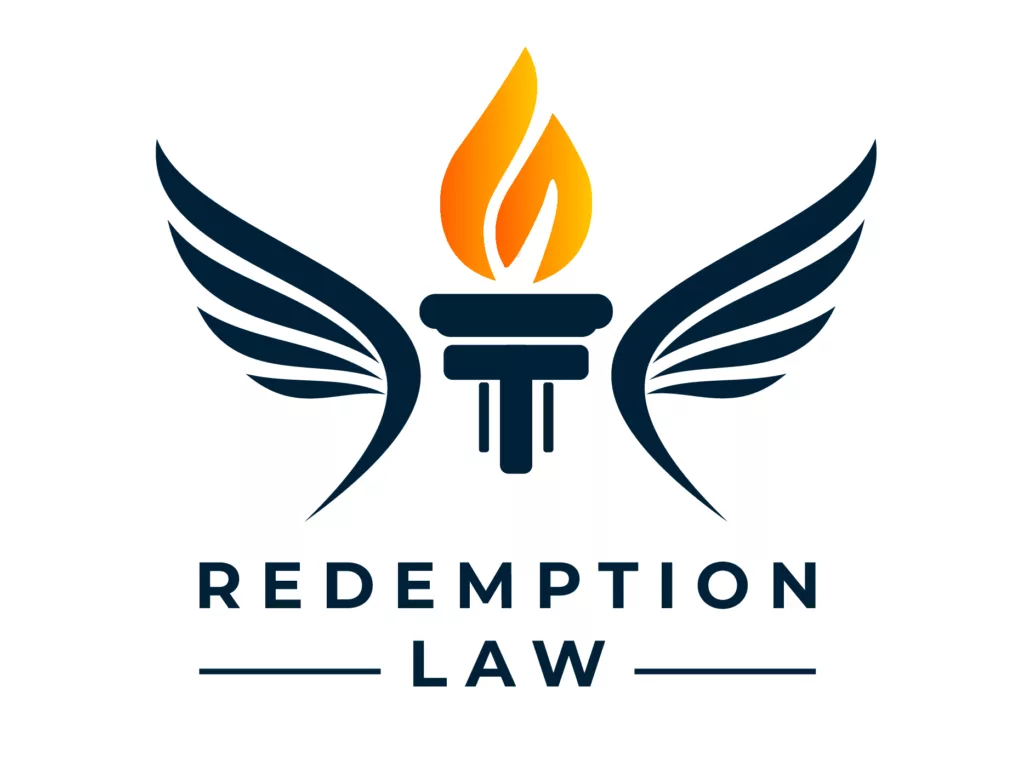
If you have suffered a disability due to a motorcycle accident, choosing the right personal injury attorney is one of the most consequential decisions you can make. Reach out to a Miami personal injury lawyer.
An experienced attorney can:
- Investigate the accident – Your lawyer will conduct a thorough investigation of the accident, gather evidence, and determine who is at fault for your losses.
- Negotiate with insurance companies – An attorney can negotiate with insurance companies on your behalf to ensure you receive fair compensation for your injuries.
- File a lawsuit – If necessary, your lawyer can help you file a lawsuit against the at-fault driver(s) to recover damages for your injuries.
Suffering a disability due to a motorcycle accident can be a life-changing experience. Accessing the resources and treatments available to help you cope with your disability depends on knowing how to hold the at-fault party accountable for their negligence.
Related articles
Related articles Related articles Related articles Related articles Related articles Related articles Related articles Related articles Related articles Related articles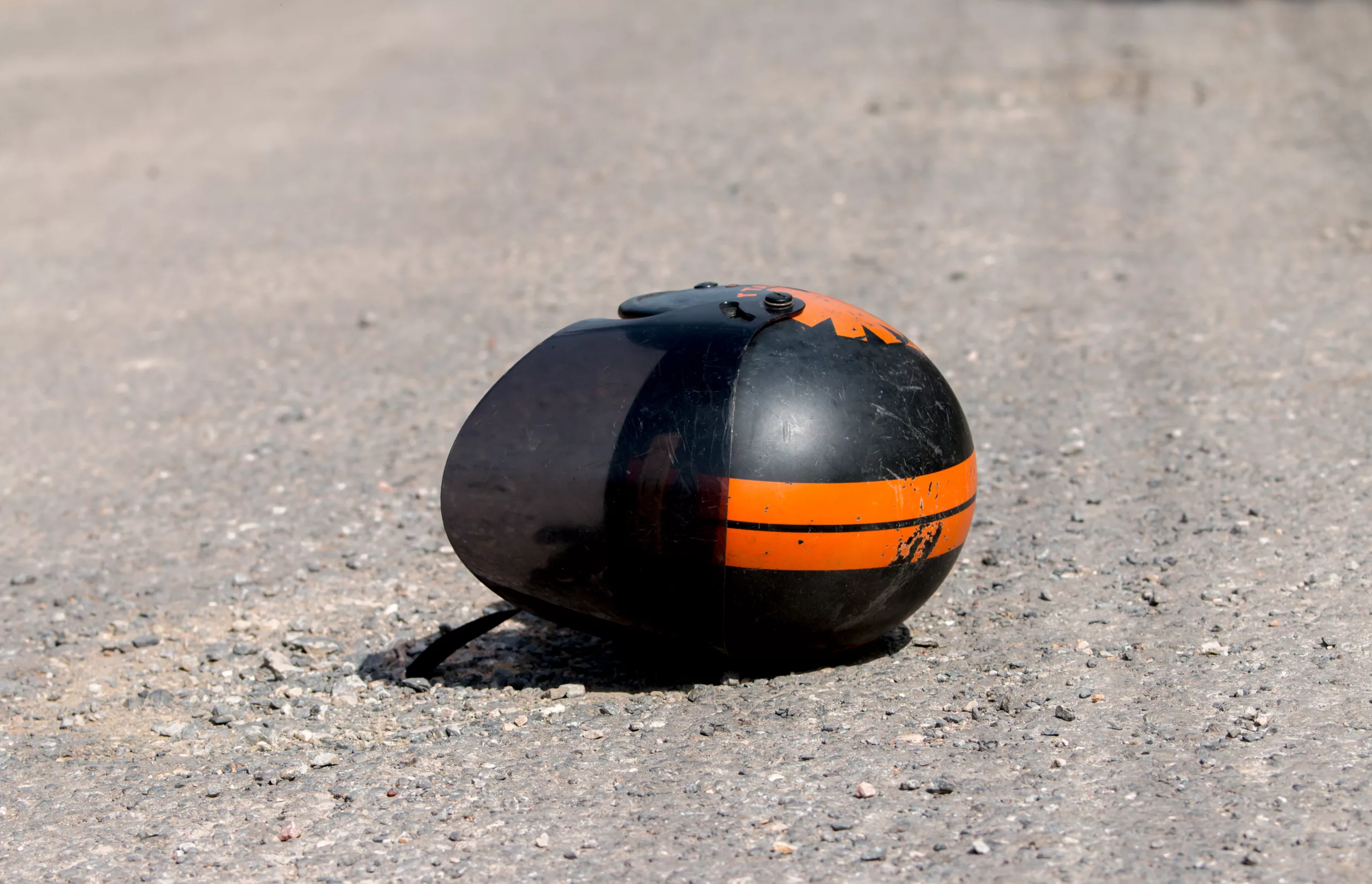
Motorcycle
16 Apr 2024
What Happens if a Road Hazard Causes My Motorcycle Accident?
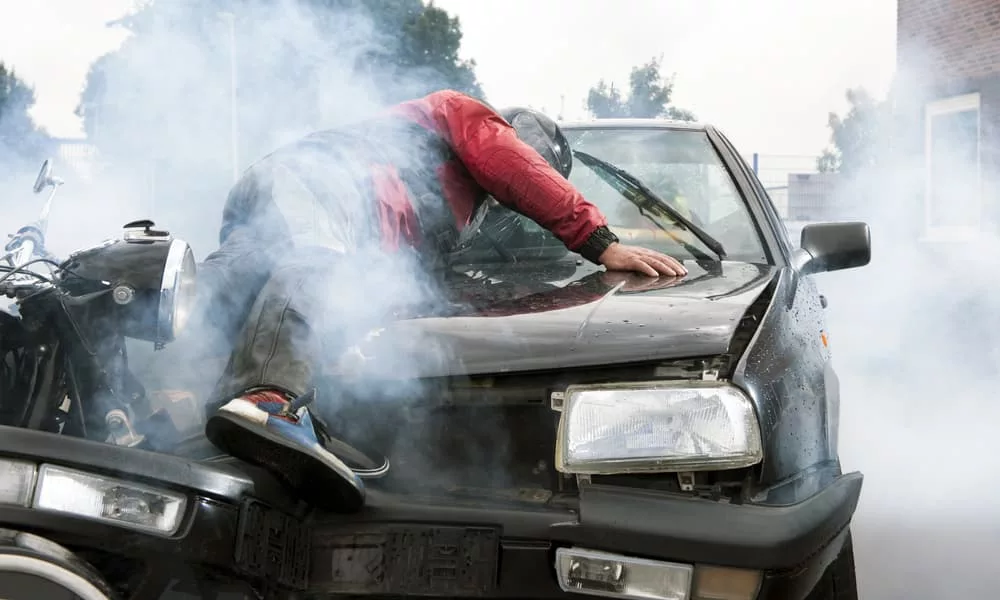
Motorcycle
04 Oct 2023
What Is the Average Payout for a Motorcycle Accident?
